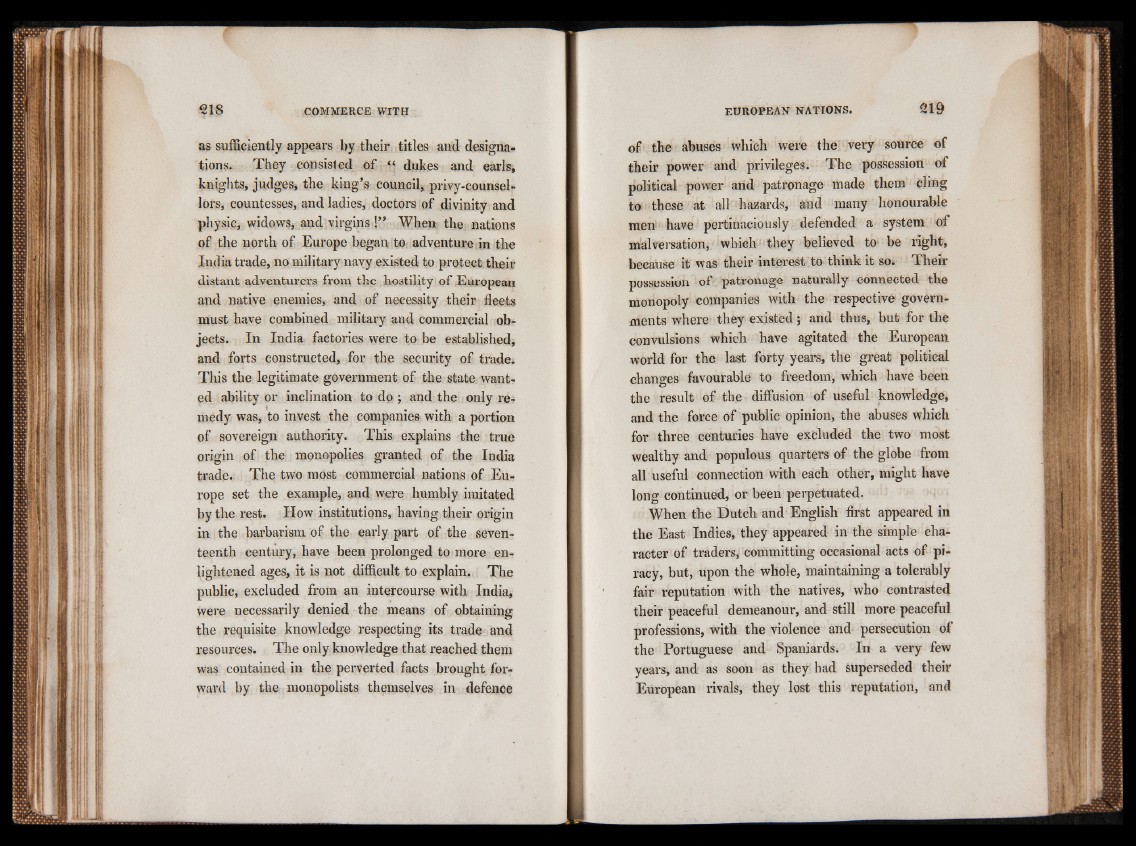
as sufficiently appears by their titles and designations.
They consisted of “ dukes and earls,
knights, judges, the king’s council, privy-counsel-
lors, countesses, and ladies, doctors of divinity and
physic, widows, and virgins ■ "When the nations
of the north of Europe began to adventure in the
India trade, no military navy existed to protect their
distant adventurers from the hostility of European
and native enemies, and of necessity their fleets
must have combined military and commercial objects.
In India factories were to be established,
and forts constructed, for the security of trade.
This the legitimate government of the state wanted
ability or inclination to do ; and the only remedy
was, to invest the companies with a portion
of sovereign authority. This explains the true
origin of the monopolies granted of the India
trade. The two most commercial nations of Europe
set the example, and were humbly imitated
by the rest. How institutions, having their origin
in the barbarism of the early part of the seventeenth
century, have been prolonged to more enlightened
ages, it is not difficult to explain. The
public, excluded from an intercourse with India,
were necessarily denied the means of obtaining
the requisite knowledge respecting its trade and
resources. The only knowledge that reached them
was contained in the perverted facts brought forward
by the monopolists themselves in defence
of the abuses which were the very source of
their power and privileges. The possession of
political power and patronage made them cling
to these at all hazards, and many honourable
men have pertinaciously defended a system of
malversation, which they believed to be right,
because it was their interest to think it so. Their
possession of patronage naturally connected the
monopoly companies with the respective governments
where they existed; and thus, but for the
convulsions which have agitated the European
world for the last forty years, the great political
changes favourable to freedom, which have been
the result of the diffusion of useful knowledge,
and the force of public opinion, the abuses which
for three centuries have excluded the two most
wealthy and populous quarters of the globe from
all useful connection with each other, might have
long continued, or been perpetuated.
When the Dutch and English first appeared in
the East Indies, they appeared in the simple character
of traders, committing occasional acts of piracy,
but, upon the whole, maintaining a tolerably
fair reputation with the natives, who contrasted
their peaceful demeanour, and still more peaceful
professions, with the violence and persecution of
the Portuguese and Spaniards. In a very few
years, and as soon as they had superseded their
European rivals, they lost this reputation, and